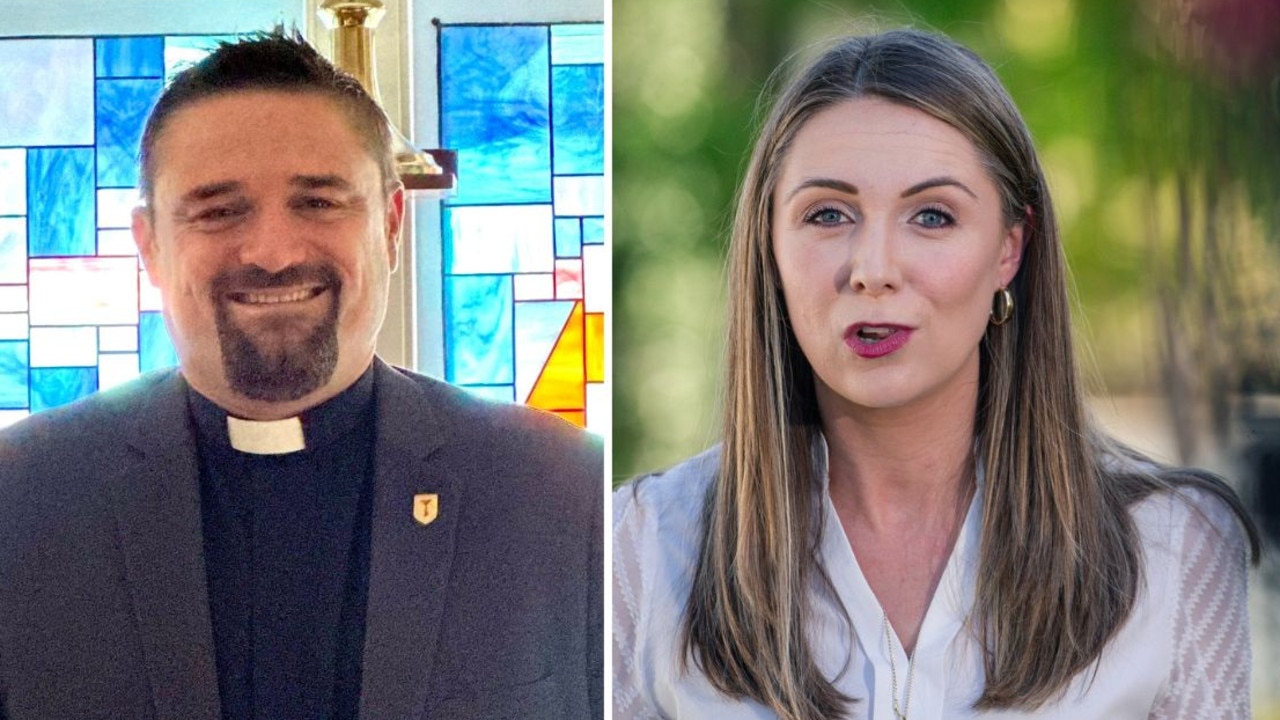QRIC roles see senior police officers’ dogged detective work continue
DECORATED police officers who worked on some of Queensland’s most notorious cases have turned their attention to another important cause.
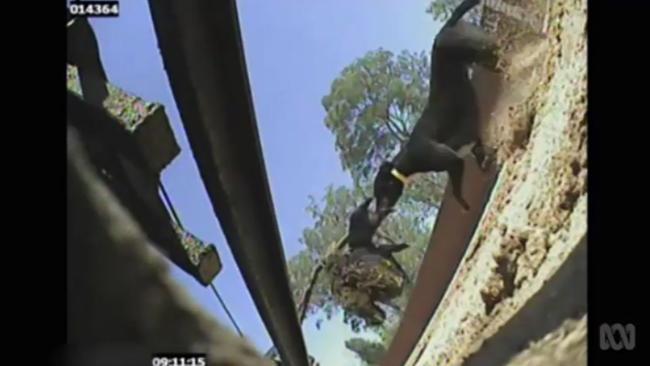
CM Insight
Don't miss out on the headlines from CM Insight. Followed categories will be added to My News.
HE WAS the face of one of Queensland’s most high-profile murder investigations, but Mark Ainsworth will tell anyone who asks that he was not much more than a face in the crowd of all those who worked at getting justice for Allison Baden-Clay.
There were the police they had to order home, the ones who hadn’t slept for days, or showered, or eaten a proper meal. The ones who worked themselves to exhaustion, who stayed away from their kids to help find a missing mum from Brookfield. Or the officer running the ground search who, after days without rest, pulled Allison’s parents aside to say: “I’ve let you down. I haven’t found your daughter.”
There were the locals who turned up day and night with baskets of food and bottles of water. The Brisbane defence lawyer who’d grown up in Brookfield, roaming the patches of suburban bushland, who went to police at the command centre to suggest a few places they might look. And Dr Gordon Guymer, the director of the Queensland Herbarium whose incredible efforts proved the leaves found in Allison’s hair could only have come from lying on the ground by the carport at her home. And so many others – all the people who gave Allison back to her family – who put her husband behind bars.
“I was the figurehead for the Baden-Clay investigation,” detective Superintendent Mark Ainsworth, the man who fronted media crews each day back in 2012, says now. “But the good work was done by the team and the community out at Brookfield.”
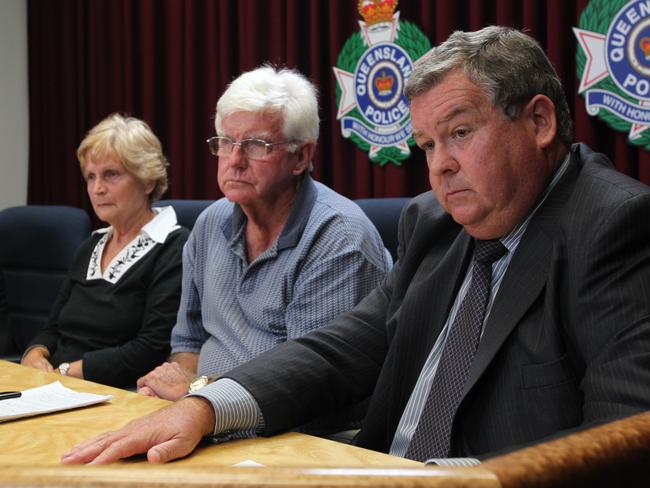
Ainsworth’s 38-year career with the Queensland Police Service is now at an end as he prepares to take on a new role as deputy commissioner of the Queensland Racing Integrity Commission.
He will join another highly decorated officer – former police deputy commissioner Ross Barnett – who has been at the helm of the QRIC since its inception in 2016.
The two men bring to the table decades of policing, expertise in counter-terrorism and organised crime, and even FBI training at the academy in Quantico.
But it’s not the Baden-Clay case that will stay with Ainsworth when he leaves the police service in the coming days – that was one where their efforts paid off, where justice was served.
For him, it was a red-headed tree lopper named Steven Goldsmith, who left his New Farm apartment one day and never returned. That was 18 years ago. Steven, if he is still alive, would be in his 50s. But Ainsworth must now leave that case for others to solve.
“We put so much work into that – into trying to find out what had happened to him. He’d left his unit, as if he was going around the corner to buy a loaf of bread or something like that,” he tells Insight.
“Everything was there on the table, waiting for him to come back. It just aroused suspicion straight away. That’s the one case where you are always thinking, what could we have done better, what didn’t we do?
“It’s just always been on my mind, that we couldn’t find him. That we’ve never given his parents closure.”
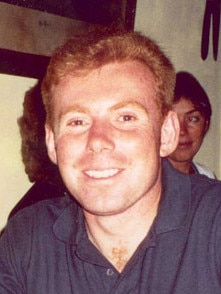
It was 1984 when Ainsworth completed the detective training course. Three years later he trained as a surveillance operative.
He used his skills in surveillance as an investigator on the Fitzgerald inquiry into police corruption.
He’d go on to senior roles with the Australian Crime Commission, the Queensland Flood Commission of Inquiry and the Trade Union Royal Commission of Inquiry. Most recently he worked in the role of director, corruption operations with the Crime and Corruption Commission. Most notable has been his work in corruption within local government.
But it’s the people, meeting the people, that Ainsworth reflects on the most.
“One of the big things would be the Flood Commission of Inquiry, which was the inquiry into the (2011) Queensland flood events,” he says.
“Just looking at the levels of devastation and what the people involved in those floods went through – how they coped, the resilience of some areas but also the heartbreak.
“I met some wonderful people in the country areas who were affected by the floods, people who will always stick in my mind.
“You look at the news and you can see things that are happening, but until you get out there and actually see it – how they had families in houses who saw the rising floodwaters coming towards them, and the wonderful escape stories that came out of that – I think it was a real eye opener for me, just trying to imagine myself in that position.”
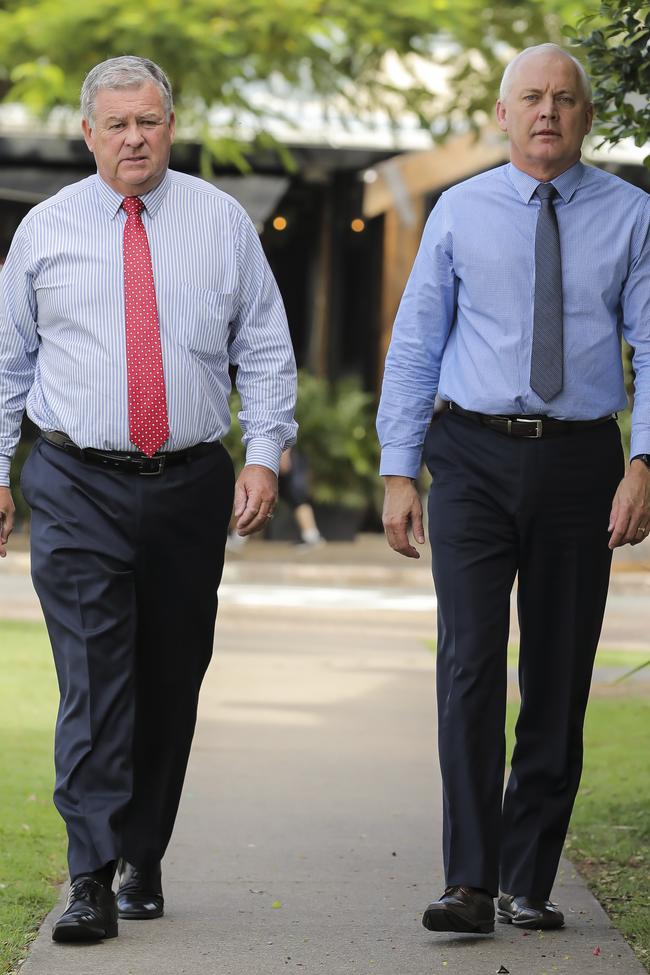
He still recalls watching the Four Corners special on live baiting that would lead to the creation of the QRIC.
Ainsworth watched horror footage – taken by animal welfare advocates – showing piglets and other small animals tied to a mechanical harness and flung around a training track for dogs to tear apart. He would soon get the call to head the Greyhound Racing Inquiry Taskforce, and he and his team would make the arrests and bring the offenders before a court.
“I watched it on the TV that night. You just sort of shake your head and think, this really couldn’t be happening,” he says.
“And to later be involved in the task force with regards to the investigation of it. You know, the good people in the industry, how they were tarnished by the number of people doing the wrong thing – that was pretty poor.
“The industry suffered a lot of reputational damage as a result of the activities of a number of people.”
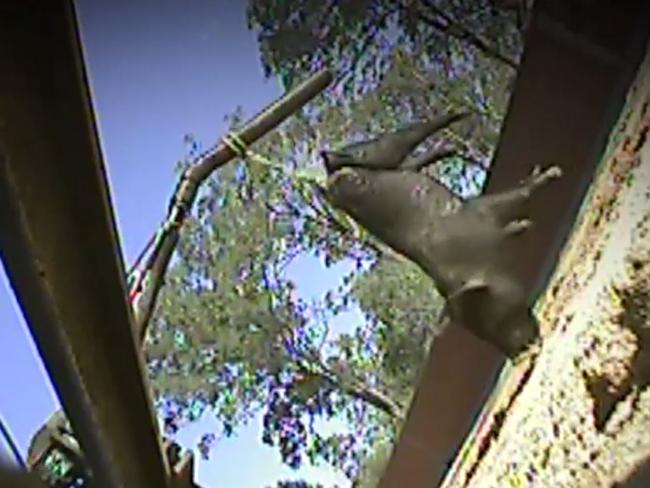
Later, as plans to create the QRIC got underway, Ainsworth was seconded to Racing Queensland to take on the role of Integrity Advisor. He liked the work – and as always, he liked the people. The people are the reason he wants to go back to working in racing.
He also believes in the importance of integrity, the importance of the public having confidence that racing is conducted fairly.
“Fifteen years ago, you didn’t have integrity units in the NRL, the AFL, tennis, swimming, racing,” he says.
“In society, gambling is increasing rapidly. People like to have a punt on the footy or the races. There is a need, in my belief, for an integrity unit to manage the sport, the way the sport is conducted.
“Because unfortunately, where you’ve got money, you’re always going to have an element of organised crime that tries to engage in that activity to make money.”
Ainsworth will join Barnett at the helm of the QRIC – another high profile cop who worked on notorious cases during his time with the police.
It was Barnett who gave the order to arrest Brett Cowan, the pedophile who murdered Daniel Morcombe. The decision had come after years of effort and dead ends, after heartbreak and frustration. And then, eight years on, when Cowan believed himself safe, police struck with an inventive and daring covert operation.
For Barnett, the past two years at the head of the QRIC have been very different from his time with the police. And there are some who don’t appreciate his investigative skills being used to uncover cheating in some parts of racing.
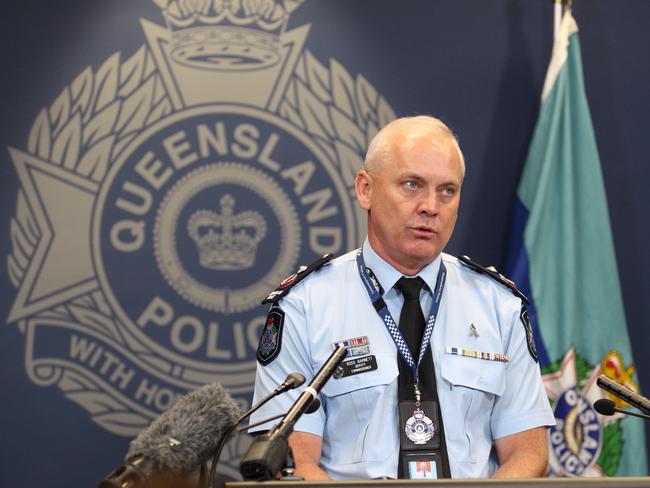
“We don’t want people to have the impression that the vast majority of racing participants don’t obey the rules because in fact they do,” he says.
“The vast majority of people are in the sport for the right reasons and want to play the game by the rules.
“That’s why the vast majority of racing people, the silent majority, I’m sure support the commission, support the work we do, because they have no concerns about us coming to visit their stables or becoming involved in their business. And they just want to see those who are cheating dealt with. I know we have strong support in that.”
When Ross Barnett reflects on his decades-long career in law enforcement, it’s not his time as deputy commissioner he goes to. Or his FBI training. Or his oversight of the G20 Summit, his work in counter-terrorism, or his involvement in the Daniel Morcombe investigation.
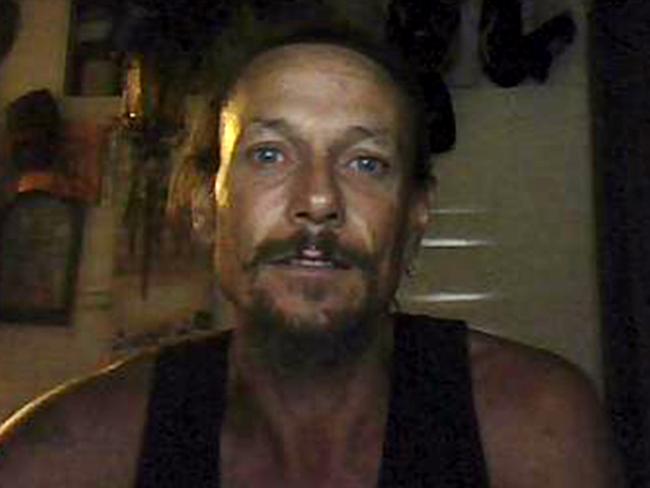
It was his work bringing down some of the state’s worst bank robbers – a crime he took personally, given he was once on the receiving end of a thug with a gun. And that’s not even a reference to the time he got shot.
“Before I joined the police, I worked in a bank on the Gold Coast,” he says.
There were two of them, Barnett and a colleague, who would open an agency at Mermaid Beach. They would drive around the back of the building, walk up an alleyway, do six hours of banking, and go home.
“Well, one morning … two guys were waiting for us in a toilet block. They jumped out in front of us, balaclavas, gun (and) dragged us into the toilet block,” he says.
“One had a pole, the other had a firearm of some sort. They dragged us into the toilet block. Bound, gagged and robbed. I thought my days were over. I was 18. So, that I considered more traumatic than being shot. At the time.
“I really thought we were up for it. They were cutting the tape off with a knife, right here (at my throat).
“Because of that experience, when I worked at the armed robbery squad, I just had tremendous passion and enjoyment for that work because of my own experience. When I’d go to a bank robbery, I could really sympathise with what happened.”
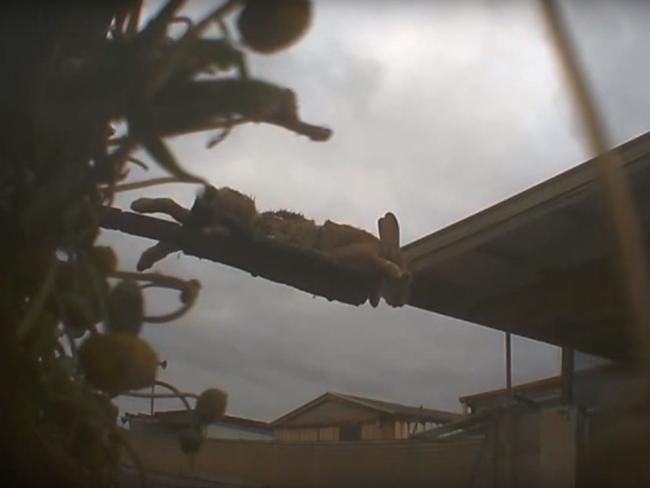
By the early 1990s, Barnett was working in the then Armed Hold-Up Squad.
He picked up a cold case investigation – a series of armed robberies on banks and armoured cars that had been carried out by the same two men going back to 1987. He would solve it – through hard work and creative thinking. The men he caught had stolen more than $3 million in total. They went to jail for 20 years.
In 1991, he was hot on the tail of another armed robber. Harold JohDann McSweeney had broken out of Boggo Road and he and another man had been hitting banks and armoured cars ever since.
Barnett and his partner caught up with McSweeney in a stolen car in Toowoomba. And the chase was on. Barnett was in the passenger seat when his partner rammed the stolen car. McSweeney opened fire and Mr Barnett was shot in the hip.
“He shot me once as I was trying to get out of the car,” he says. “The window, the driver’s side window beside my head blew out. I don’t know how close that was but it was close.”
With a gunshot wound to the hip, Barnett and his partner chased McSweeney on foot. He wasn’t on the run for long. His next escape attempt – from court – would be his last. He was shot by a court security officer after taking a bus driver hostage.
Protecting the integrity of Queensland’s three racing codes is a long way from their days of solving murders, chasing armed robbers and investigating terrorism – but both men believe in its importance.
Today, there is little sign of the live baiting horror that led to the creation of the QRIC. But it’s something they remain ever vigilant about.
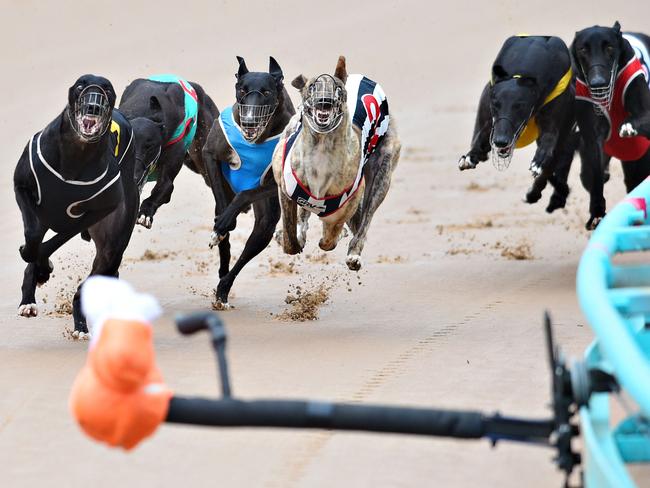
“There hasn’t been a live baiting arrest since we started and that’s a good thing,” Barnett says.
“We’re always vigilant to ensure that it doesn’t reappear and if anyone has any information, we’re always keen to hear from them.”
On July 1, the QRIC will hit its second anniversary. One of its major achievements has been a series of race-fixing charges involving harness racing. And while charges against two racing participants were recently dropped – resulting in loud criticism from racing enthusiasts – others have resulted in guilty pleas. One of them was former driver Barton Cockburn, who was fined $5000 for fixing two races, his lawyer telling the court “everybody’s doing it”.
More recently, QRIC stewards charged a member of a high-profile racing family with 12 counts of treating a horse on race day. Barnett says inquiries are still ongoing in that matter.
“I hope that the work that we’ve done that’s been publicised gives people inside the industry and the general public some confidence that we are serious and that we have the powers and the people available to investigate matters and bring them to finalisation,” he says. “The image of the sport of racing in general is significantly better now than it was a couple of years ago.”

